Scientists demonstrate a process called “magic state distillation” in logical qubits for the first time, meaning we can now build quantum computers that are both error-free and more powerful than supercomputers.
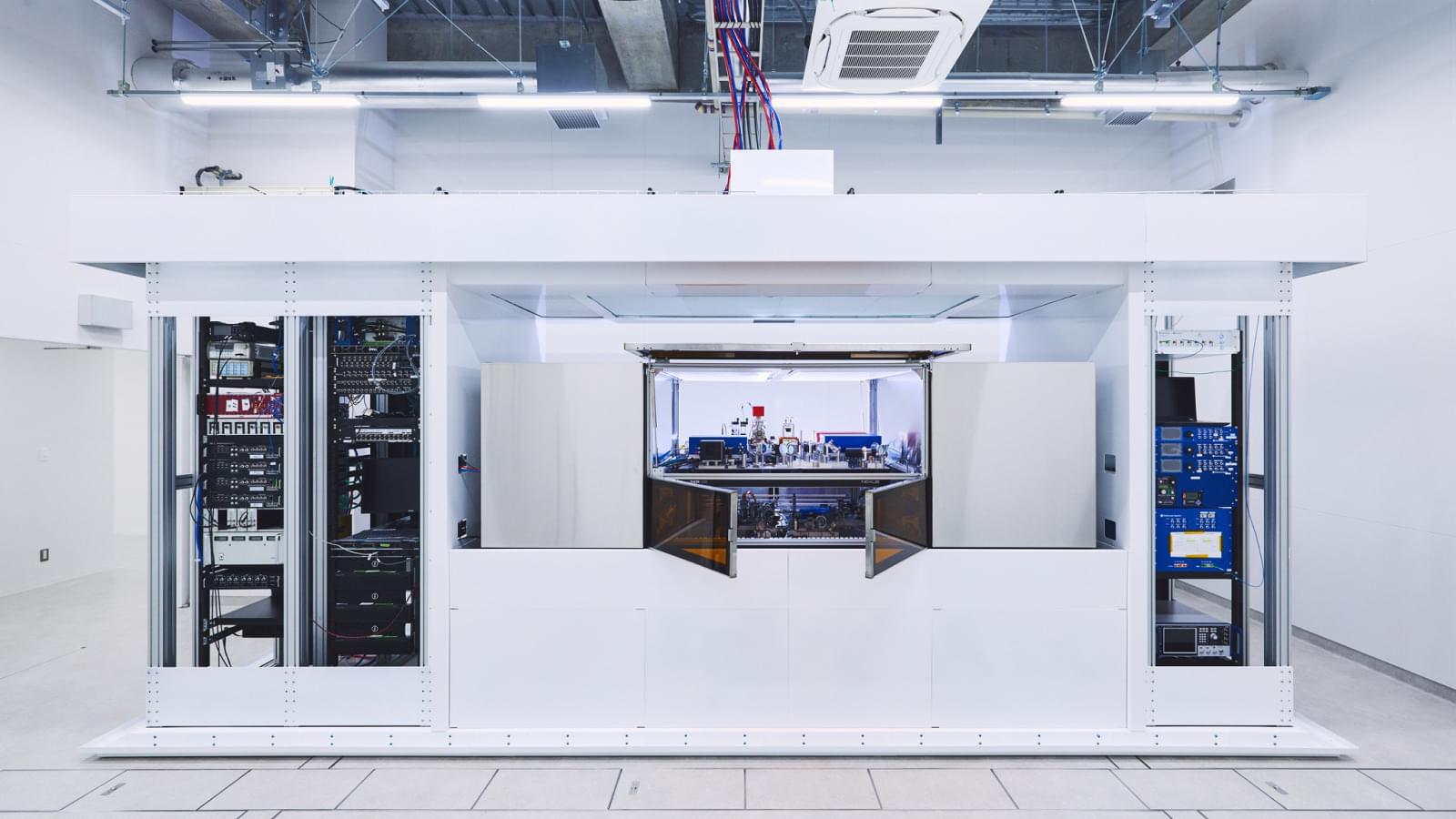

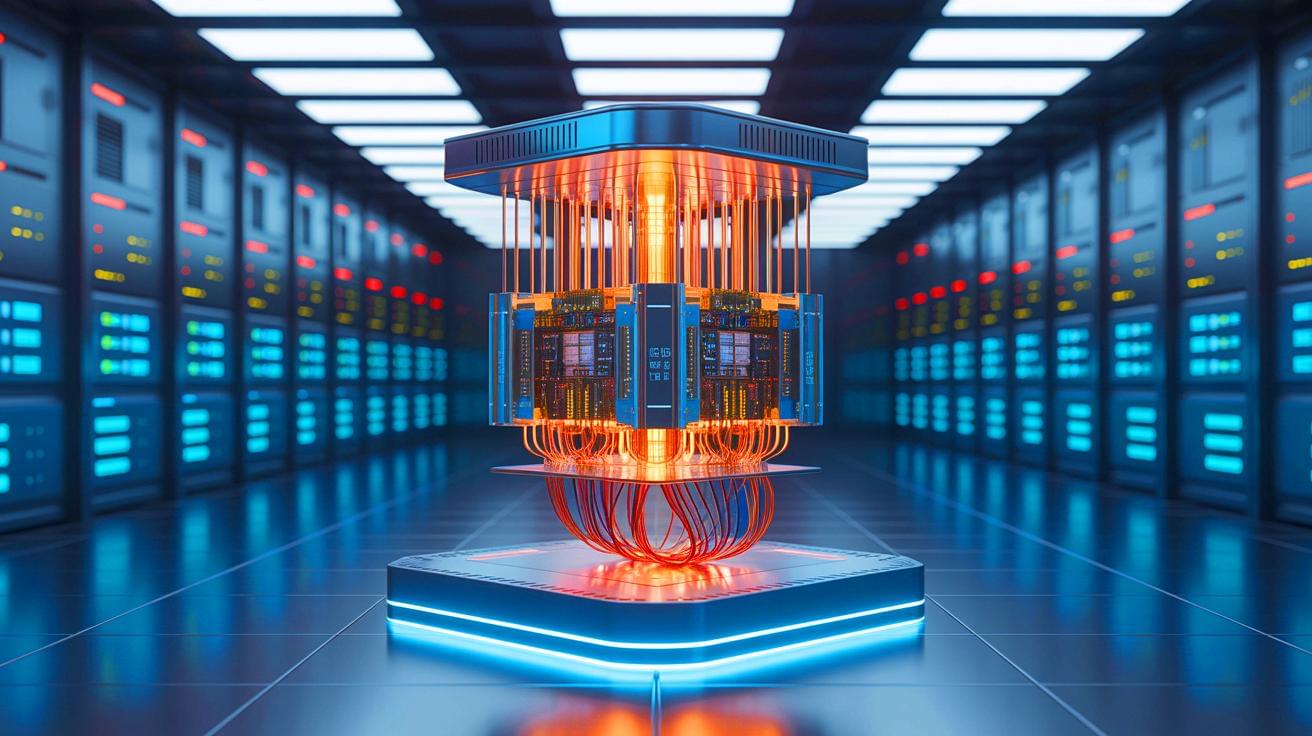
IN A NUTSHELL 🚀 Nord Quantique introduces a revolutionary bosonic qubit design that integrates error correction directly into its structure. 🌱 The new quantum computers are significantly energy-efficient, using only a fraction of the power required by traditional systems. 🔧 Utilizing multimode encoding, Nord Quantique’s system achieves a 1:1 ratio of physical to logical qubits.
Tesla’s technological advancements and strategic investments in autonomous driving, particularly in its Full Self-Driving technology, are giving the company a critical and potentially insurmountable lead in the industry ## Questions to inspire discussion.
Tesla’s AI and autonomous driving advancements.
🚗 Q: When will Tesla’s Dojo 2 supercomputer start mass production? A: Tesla’s Dojo 2 supercomputer is set to begin mass production by the end of 2025, providing a significant advantage in autonomous driving and AI development.
🧠 Q: How does Tesla’s AI system Grok compare to other AI? A: According to Jeff Lutz, Tesla’s AI system Grok is now the smartest AI in the world and will continue to improve with synthetic data training.
🚕 Q: What advantages does Tesla have in autonomous driving development? A: Tesla’s Full Self-Driving (FSD) technology allows the company to collect and use real-world data for AI model training, giving it a significant edge over competitors relying on simulated or internet data.
Tesla’s Operational Excellence.
Questions to inspire discussion.
🚀 Q: How might Elon Musk’s diverse projects contribute to Tesla’s value? A: Musk’s involvement in AI, energy, transportation, and communication through projects like Tesla, SpaceX, and Neuralink demonstrates his capacity to make progress on multiple fronts, potentially creating significant value for Tesla.
Political Involvement and Economic Strategy.
🏛️ Q: Why is Elon Musk getting involved in politics? A: Musk’s political involvement aims to create a better political system on Earth, addressing the unsustainability of US government spending and debt to avoid a fiscal doom loop.
📊 Q: What is Musk’s strategy to improve the US economy? A: Musk plans to accelerate GDP growth through AI-driven growth, humanoid bots, and reducing government spending and waste, potentially breaking free from the constant 7% growth line of the US stock market.
💰 Q: How could reducing government spending benefit the economy? A: By cutting wasteful spending and implementing a balanced budget requirement, the US could potentially grow its economy faster than its spending, reducing interest costs and freeing up money for other investments.
Dark matter is one of nature’s most confounding mysteries. It keeps particle physicists up at night and cosmologists glued to their supercomputer simulations. We know it’s real because its mass prevents galaxies from falling apart. But we don’t know what it is.
Dark matter doesn’t like other matter and may prefer its own company. While it doesn’t seem to interact with regular baryonic matter, it could possibly react with itself and self-annihilate. It needs a tightly-packed environment to do that, and that may lead to a way astrophysicists can finally detect it.
New theoretical research outlines how this could happen and states that sub-stellar objects, basically brown dwarfs, could host the process. The research is titled “Dark dwarfs: dark matter-powered sub-stellar objects awaiting discovery at the galactic center,” and it’s published in the Journal of Cosmology and Astroparticle Physics. The lead author is Djuna Croon, a theoretical physicist and assistant professor in the Institute for Particle Physics Phenomenology in the Department of Physics at Durham University.
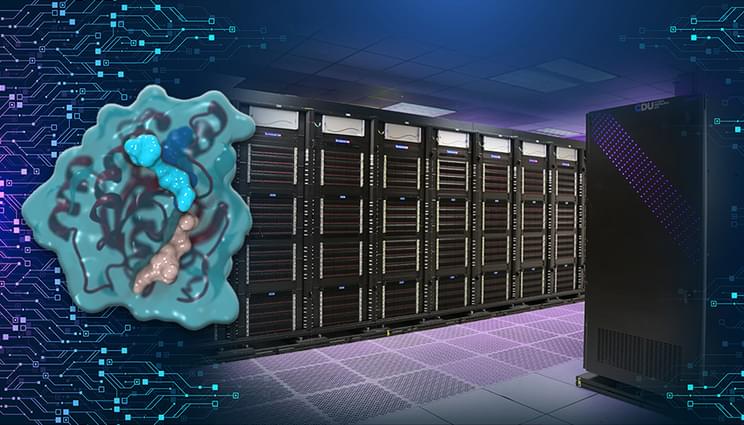
A new cancer drug candidate developed by Lawrence Livermore National Laboratory (LLNL), BBOT (BridgeBio Oncology Therapeutics) and the Frederick National Laboratory for Cancer Research (FNLCR) has demonstrated the ability to block tumor growth without triggering a common and debilitating side effect. In early clinical trials, the compound, known as BBO-10203, has shown promise in disrupting a key interaction between two cancer-driving proteins — RAS and PI3Kα — without causing hyperglycemia (high blood-sugar levels), which has historically hindered similar treatments. Published in Science
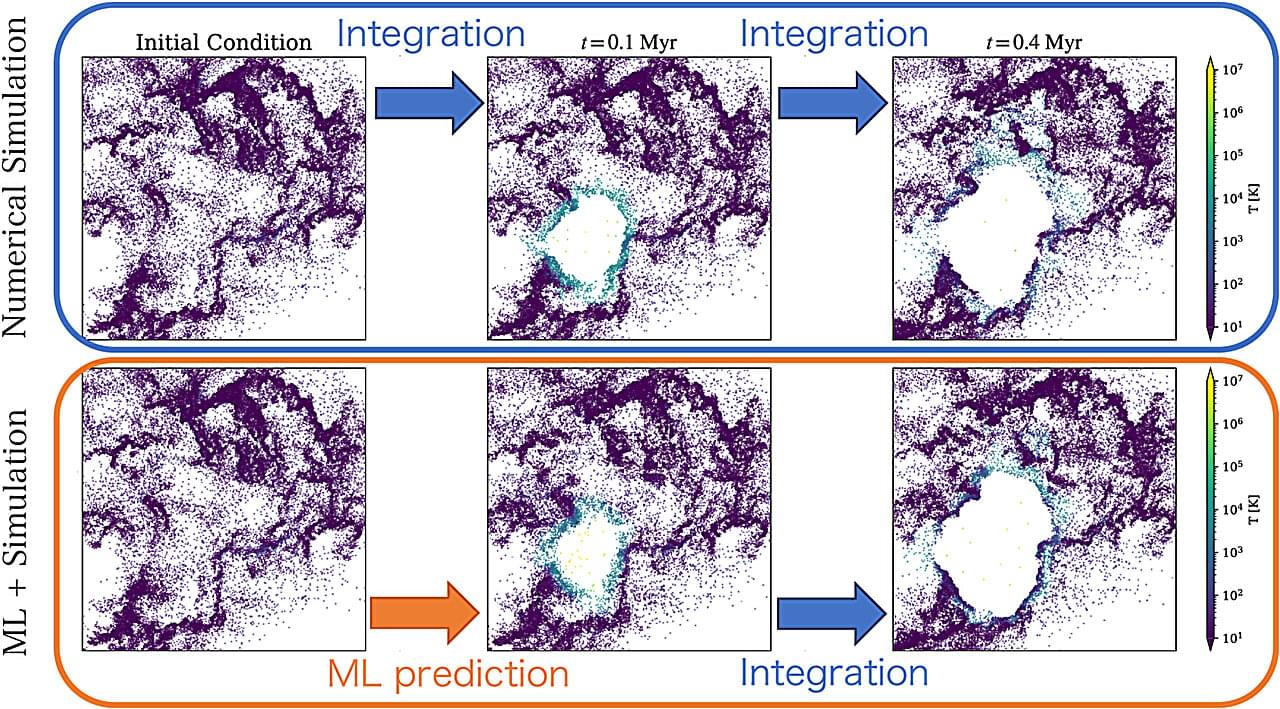
Researchers have used machine learning to dramatically speed up the processing time when simulating galaxy evolution coupled with supernova explosion. This approach could help us understand the origins of our own galaxy, particularly the elements essential for life in the Milky Way.
The findings are published in The Astrophysical Journal.
The team was led by Keiya Hirashima at the RIKEN Center for Interdisciplinary Theoretical and Mathematical Sciences (iTHEMS) in Japan, along with colleagues from the Max Planck Institute for Astrophysics (MPA) and the Flatiron Institute.
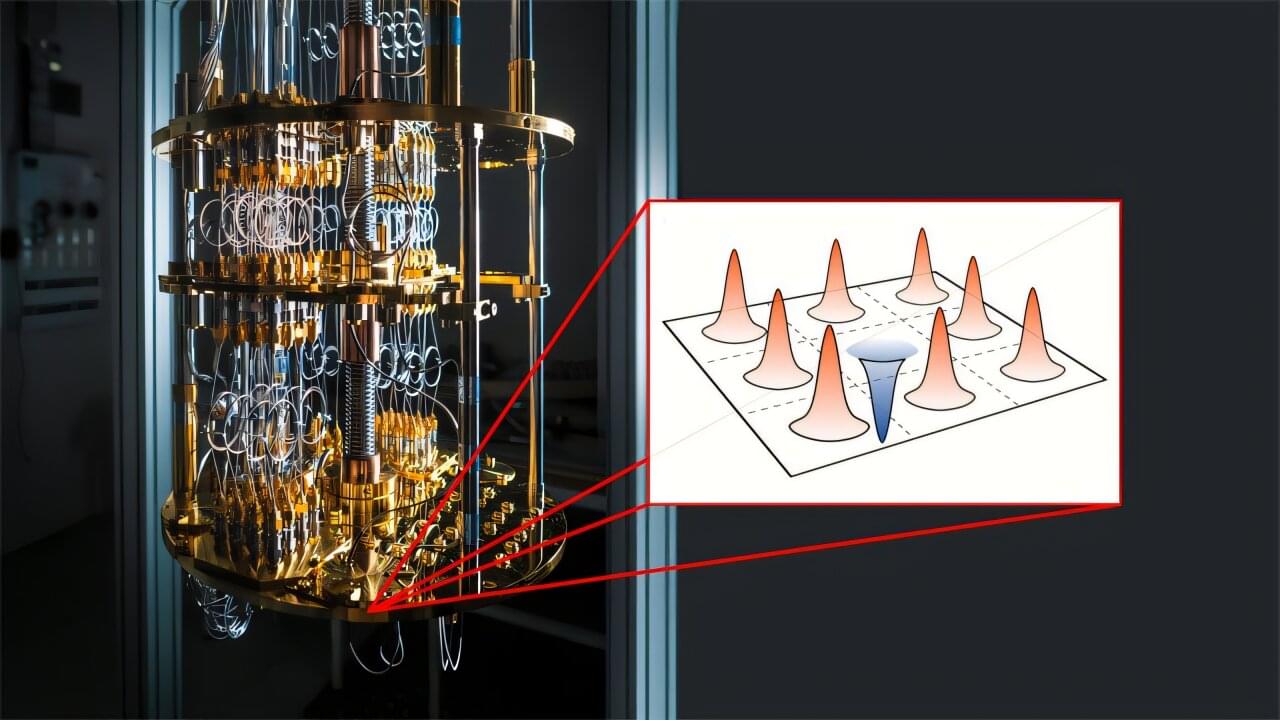
Quantum computers still face a major hurdle on their pathway to practical use cases: their limited ability to correct the arising computational errors. To develop truly reliable quantum computers, researchers must be able to simulate quantum computations using conventional computers to verify their correctness—a vital yet extraordinarily difficult task.
Now, in a world-first, researchers from Chalmers University of Technology in Sweden, the University of Milan, the University of Granada, and the University of Tokyo have unveiled a method for simulating specific types of error-corrected quantum computations—a significant leap forward in the quest for robust quantum technologies.
Quantum computers have the potential to solve complex problems that no supercomputer today can handle. In the foreseeable future, quantum technology’s computing power is expected to revolutionize fundamental ways of solving problems in medicine, energy, encryption, AI, and logistics.
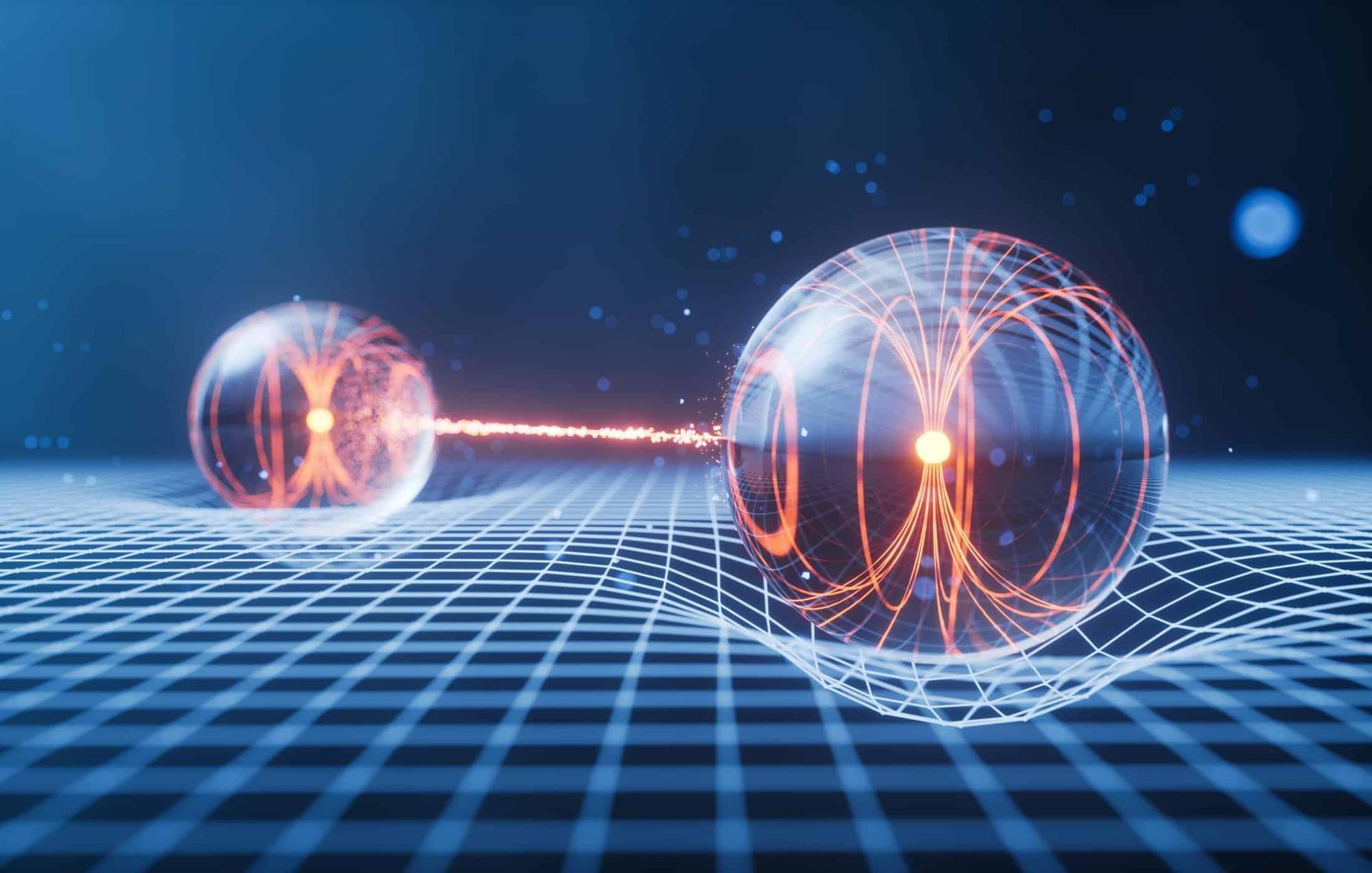
From enabling quantum supercomputers to securing communications and teleporting quantum states, entanglement is the thread weaving through all of quantum technology. What once struck Einstein as a paradox is today routinely observed and harnessed in labs – the “spooky action” has become a practical tool. We have learned that entanglement is not some esoteric fringe effect; it’s a concrete physical resource, much like energy or information, that can be exploited to do tasks that are otherwise impossible. Its special correlations allow quantum computers to perform massively parallel computations in a single wavefunction, allow cryptographers to detect eavesdroppers with absolute certainty, and allow quantum states to be transmitted without moving a physical carrier.
Yet, there is still much to master. Entangling a handful of qubits is easy; doing so with thousands or millions – while keeping them error-corrected – remains a grand challenge. As we push the number of entangled particles higher, we are essentially scaling up new forms of matter (entangled states) that have no counterpart in classical physics. In 2022, a 12-qubit entangled state might be a small quantum circuit; by 2035, we could be operating machines where 1,000 qubits are all entangled in complex ways, delivering computational feats far beyond today’s reach. On the communications front, nascent quantum networks are entangling nodes over city-scale distances, working toward a future quantum internet that could interconnect quantum computers or enable clock synchronization and sensing with unprecedented precision. Each improvement in generating high-quality entanglement over distance inches us closer to unhackable global communication links.
Entanglement also raises philosophical questions about the nature of reality – it blurs the boundary between “separate” objects and challenges our intuitions of locality. But from an engineer’s perspective, entanglement is also just another phenomenon to be tamed and utilized. The narrative of quantum technology is one of turning quantum quirks into quantum capabilities. Where classical engineers use wires and signals, quantum engineers use entanglement and superposition. It’s telling that entanglement is often called the “essence” or “cornerstone” of quantum mechanics – crack it, and you unlock a whole new paradigm of information processing.
